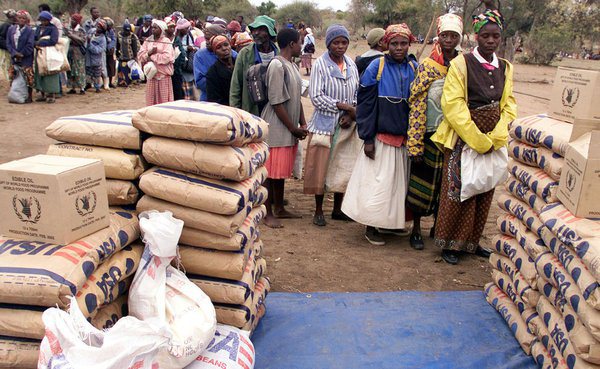By Vumani Mthiyane
Traditional leaders in Gwanda South District have made a public outcry to the government to continue giving food aid to vulnerable communities after it stopped doing so, CITE has established.
Despite the bumper harvest experienced by some farmers, most vulnerable groups such as People With Disabilities, orphans (child headed families) and the elderly have little or nothing to feed themselves.
Traditional leaders confirmed to this publication that the hunger situation was terrible for the vulnerable and called on the government to restore food aid.
“Not everyone was able to till their fields due to different reasons and those families who didn’t harvest, remain highly vulnerable to hunger and starvation.”
Rodgers Moyo, a senior village head of Sengezane Village under Chief Nhlamba.
“People will die of hunger, if they don’t receive assistance.”
Moyo added the hunger situation was compounded by fact there were lot of rains that washed away some of the crops.
“Some fields have a poor drainage system where all the fertile topsoil was swept away by water. As a result, some families harvested less than a bag of maize, which won’t take them anywhere hence we are appealing to government to bring back the food aid programme,” appealed the senior village head.
Ward 14 councillor, Phineas Maphosa, concurred with his traditional superior that lack of food aid was like a double-edged knife.
“Food aid saves the lives of those food insecure households while on the other hand it promotes laziness to some who become used to be fed as abantwana benyoni (nestlings). But as a local government authority, I don’t think stopping of food aid is a noble idea, looking at our vulnerable communities such as the elderly, disabled and orphans who can not fend on their own,” he said.
Maphosa also indicated that besides the implementation of Intwasa farming programme, the vulnerable groups could not be actively involved as the farming technique is labour intensive.
“I therefore urge the government, through the department of Social Welfare to come assess the level of vulnerability in our communities. The situation is dire because people are food insecure,” he said.
A 72-year-old elderly woman with disabilities, Jestinah Ndlovu, also a guardian to five orphans, said whatever could be sourced for them was better than nothing.
“Half a loaf is better than nothing. We used to receive 50kg of maize monthly before the government closed the drought relief programme. Now, I and my grandchildren have become scavengers,” she said.
“My grandchildren are very young, such that they can not do farming. I too due to my condition, I am unable to go farm. Life is tough, we are now the talk of the village because of how we scavenge for food from our neighbours who are fed up with helping us.”
Contacted for comment, Matabeleland South Provincial Social Welfare Manager, Criswell Nyakudya, said the matter was beyond their control, as the decision to stop food aid was done by Cabinet.
“I want put this on record that food aid mitigation is beyond social welfare as a department, following the 2020/2021 expected bumper harvest, cabinet arrived at the decision to stop the relief aid. However, in actuality, the programme did not completely stop, as in May 2021 vulnerable communities such as the elderly, disabled, child headed families will resume receiving food aid. Other groups will also receive aid depending on how food insecure they are,” he explained.

